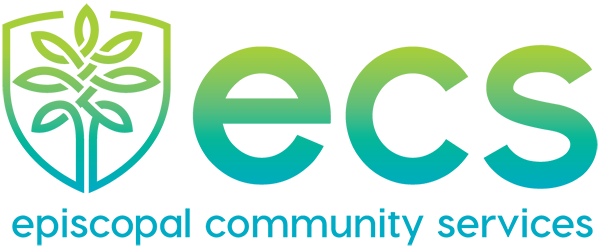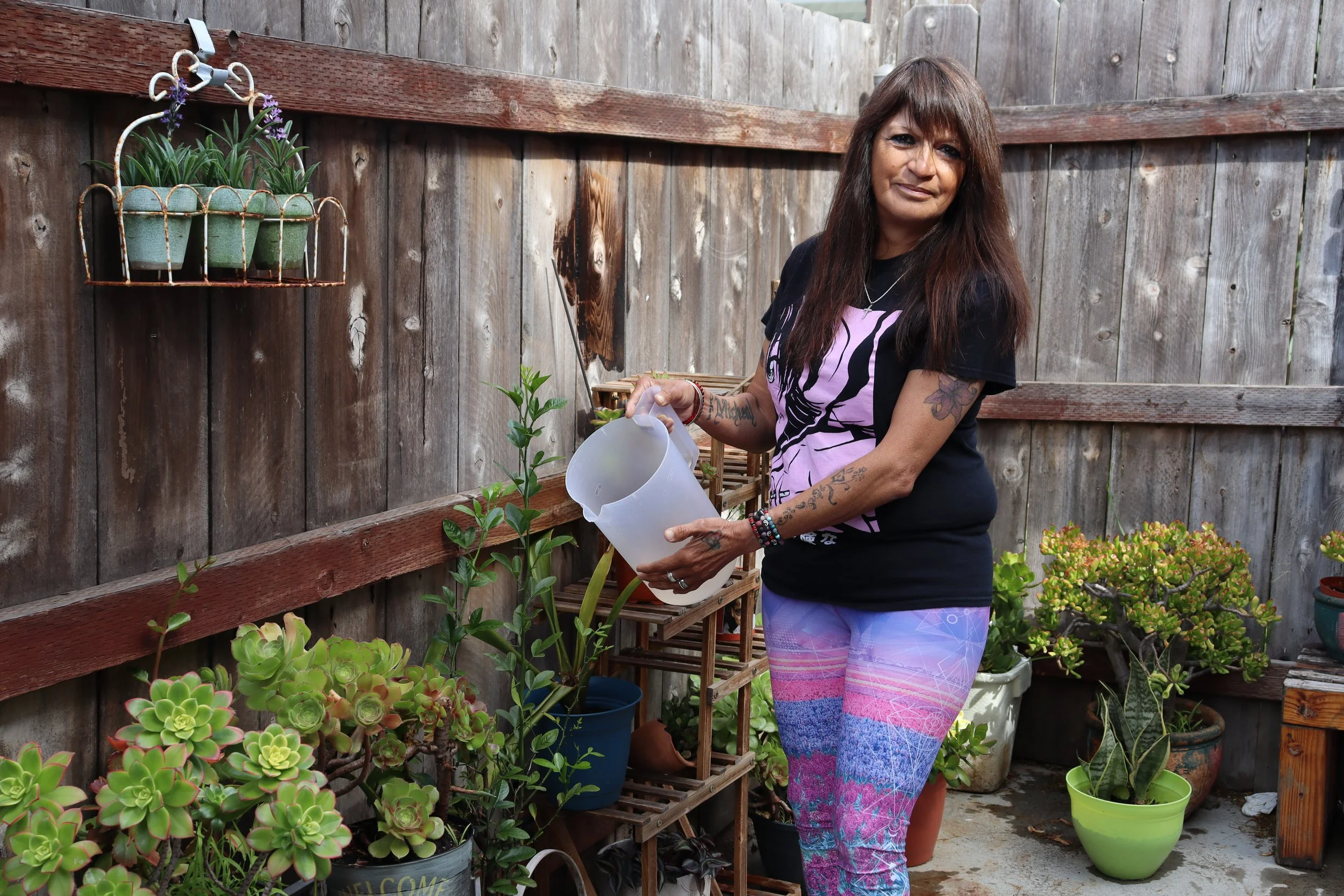UTSH residents work on a various art projects. March 2025.
Residents at ECS Uptown Safe Haven (UTSH) tapped into their creativity during another art class, this time painting door signs. The art class projects vary — residents try their hands at everything from creating abstract watercolor pieces and still life drawings to decorating wood cutouts and ornaments. The classes begin with an education session on different art techniques such as mixing prime colors, studying light, and learning about still life.
Residents express their creativity by painting door signs. March 2025.
These classes would not be possible without the dedication of two volunteers: Paula McColl and Gerri Smith. Paula and Gerri are parishioners at St. James-by-the-Sea, and they are also both artists with experience in art instruction. The women plan the projects for each month’s class and provide all of the supplies.
Art classes provide a relaxing positive enrichment activity for residents and allows them to express themselves through a creative outlet.
Residents will have the chance to showcase their finished products at the Art Speaks art show on October 24 at St. James-by-the-Sea. 100% of the proceeds from the sales of each piece at the exhibit go directly to the resident who created the piece.
To learn more about the work UTSH does, visit Uptown Safe Haven — Episcopal Community Services.
Art classes allow residents to learn more about art and relax as they craft. March 2025.
Volunteers from St. James-by-the-Sea give their time and talent to UTSH art classes. March 2025.
























